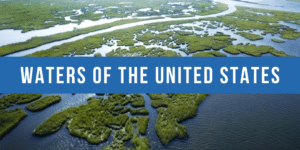









Supreme Court WOTUS Decision Puts Fisheries, Water Quality, and Human Health at Risk
FOR IMMEDIATE RELEASE: May 30, 2023 Contact: Drue Winters [email protected] FISHERIES, WATER QUALITY, AND HUMAN HEALTH AT RISK DUE TO LOSS OF WETLANDS PROTECTIONS UNDER


